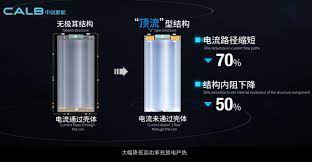
Exploring the Future: New Battery Technology Innovations
New Battery Technology: Revolutionizing Energy Storage
In recent years, advancements in battery technology have been nothing short of revolutionary. From smartphones to electric vehicles, the demand for more efficient and longer-lasting batteries has never been greater. Researchers and engineers around the world are continuously working on developing new battery technologies that promise to reshape the way we store and use energy.
One of the most promising developments in battery technology is the rise of solid-state batteries. Unlike traditional lithium-ion batteries that use liquid electrolytes, solid-state batteries utilize solid electrolytes. This design offers several advantages, including increased energy density, faster charging times, improved safety, and longer lifespan.
Another exciting innovation is the use of nanotechnology in battery design. By manipulating materials at the nanoscale level, researchers are able to enhance battery performance significantly. Nanomaterials such as graphene and carbon nanotubes are being integrated into battery electrodes to improve conductivity and increase energy storage capacity.
Furthermore, researchers are exploring alternative materials for battery construction to reduce reliance on scarce resources like lithium and cobalt. Sodium-ion batteries, for example, offer a more sustainable solution with abundant sodium resources compared to lithium. Similarly, magnesium-based batteries show promise for their potential high energy density and low cost.
The development of rechargeable zinc-air batteries is also gaining traction as a cost-effective and environmentally friendly energy storage solution. These batteries use oxygen from the air as a cathode reactant, making them lightweight and potentially more affordable than traditional lithium-ion batteries.
As these new battery technologies continue to evolve and mature, we can expect significant advancements in various industries such as renewable energy storage, electric transportation, consumer electronics, and grid-level applications. The future of energy storage looks brighter than ever with these innovative solutions on the horizon.
Overall, the ongoing research and development in new battery technology hold immense promise for a more sustainable and efficient energy future. With continued investment and collaboration among scientists, engineers, and manufacturers, we can look forward to a world powered by cutting-edge battery technologies that revolutionize how we store and utilize energy.
Top 7 FAQs About Emerging Battery Technologies and Innovations
- What battery technology will replace lithium-ion?
- What is the latest technology in batteries?
- What is the new battery to replace lithium?
- What is Elon Musk new battery?
- What is the new MIT battery technology?
- What will replace cobalt in batteries?
- Is there a better battery than lithium-ion?
What battery technology will replace lithium-ion?
The question of which battery technology will replace lithium-ion is a common inquiry in the realm of energy storage innovation. While lithium-ion batteries have dominated the market for years due to their high energy density and reliability, researchers are actively exploring alternative technologies to address limitations such as resource scarcity and safety concerns. Promising candidates for replacing lithium-ion include solid-state batteries, which offer enhanced safety and energy density, as well as next-generation options like sodium-ion and magnesium-based batteries that leverage abundant resources for sustainable energy solutions. Additionally, advancements in rechargeable zinc-air batteries show potential for cost-effectiveness and environmental friendliness. As research and development efforts continue to push the boundaries of battery technology, the future holds exciting possibilities for a successor to lithium-ion that could revolutionize energy storage across various industries.
What is the latest technology in batteries?
The latest technology in batteries includes advancements in solid-state batteries, nanotechnology integration, alternative materials exploration, and rechargeable zinc-air batteries. Solid-state batteries, utilizing solid electrolytes instead of liquid ones, offer improved energy density and safety. Nanotechnology applications like graphene and carbon nanotubes enhance battery performance through increased conductivity and energy storage capacity. Researchers are investigating alternative materials such as sodium and magnesium to reduce reliance on scarce resources like lithium and cobalt. Rechargeable zinc-air batteries, leveraging oxygen from the air as a cathode reactant, present a cost-effective and environmentally friendly energy storage solution. These cutting-edge developments represent the forefront of battery technology innovation, promising more efficient and sustainable energy storage solutions for various industries.
What is the new battery to replace lithium?
Researchers and scientists are actively exploring various alternatives to lithium-ion batteries in the quest for a more sustainable and efficient energy storage solution. One promising candidate that has garnered significant attention is the solid-state battery. Solid-state batteries utilize solid electrolytes instead of liquid electrolytes, offering advantages such as higher energy density, faster charging times, improved safety, and longer lifespan. Additionally, sodium-ion batteries and magnesium-based batteries are being investigated as potential replacements for lithium-ion batteries due to their abundance of raw materials and potential for high energy density. These innovative battery technologies hold promise in reshaping the future of energy storage and powering a more sustainable world.
What is Elon Musk new battery?
Elon Musk’s new battery technology refers to Tesla’s latest innovation in energy storage solutions. Known as the “4680” battery cell, this next-generation battery is larger in size and features a more efficient design compared to traditional lithium-ion batteries. The 4680 battery boasts higher energy density, faster charging capabilities, and improved thermal management, making it a game-changer for electric vehicles and renewable energy storage systems. Elon Musk’s vision for this new battery technology is to accelerate the transition to sustainable energy by offering more powerful and cost-effective solutions that drive innovation in the clean energy sector.
What is the new MIT battery technology?
The new battery technology developed by MIT researchers is known as the “Lithium Metal Battery.” This innovative battery design incorporates a high-energy lithium metal anode with a novel electrolyte solution that enables the battery to operate at room temperature. The key feature of this technology is its ability to significantly increase energy density and storage capacity, promising longer-lasting and more efficient batteries for various applications. MIT’s lithium metal battery technology represents a significant advancement in the field of energy storage, with the potential to revolutionize the way we power devices and vehicles in the future.
What will replace cobalt in batteries?
The search for a viable alternative to cobalt in batteries has been a topic of significant interest and research within the battery technology industry. One promising solution that has emerged is the exploration of nickel-based chemistries, such as nickel-manganese-cobalt (NMC) and nickel-cobalt-aluminum (NCA) formulations. These nickel-rich battery compositions offer improved energy density and stability while reducing the reliance on cobalt, which is often associated with ethical and environmental concerns. Additionally, advancements in solid-state electrolytes, silicon anodes, and other innovative materials are being investigated as potential substitutes for cobalt in batteries, paving the way for a more sustainable and environmentally friendly future for energy storage solutions.
Is there a better battery than lithium-ion?
The question of whether there is a better battery than lithium-ion is a common inquiry in the realm of battery technology. While lithium-ion batteries have been the go-to choice for many applications due to their high energy density and reliability, researchers are actively exploring alternative battery technologies that could potentially surpass lithium-ion in terms of performance, safety, and sustainability. Innovations such as solid-state batteries, sodium-ion batteries, magnesium-based batteries, and rechargeable zinc-air batteries are among the promising contenders that offer unique advantages over traditional lithium-ion technology. As research and development efforts continue to progress, the possibility of a better battery than lithium-ion becoming a reality grows increasingly plausible, heralding a new era of energy storage solutions with enhanced capabilities and efficiency.

